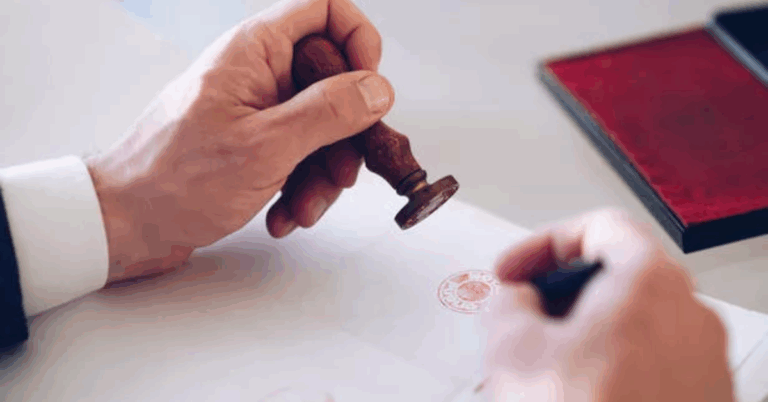Apostille Scranton Pennsylvania PA: Your Trusted Guide to International Document Authentication
If you’re in Scranton, Pennsylvania (PA) and need to send official documents abroad, you’ll likely encounter the need for an apostille. This legal authentication process ensures that your documents are accepted in foreign countries for official purposes. Whether you’re applying Apostille Scranton Pennsylvania PA for dual citizenship, studying or working overseas, or expanding your business globally, understanding the apostille process is essential.
This article will explain what an apostille is, which documents require one, how the process works in Pennsylvania, and why professional apostille services in Scranton can make a big difference in accuracy, speed, and peace of mind.
What Is an Apostille?
An apostille is a form of international document certification that confirms the authenticity of a public document. It verifies the signature, seal, or stamp on a document, making it legally valid in other countries that are members of the Hague Apostille Convention of 1961.
Once a document is apostilled, it can be presented in any of the over 120 countries that are part of the convention without needing further authentication from embassies or consulates.
Why Apostille Services Are Needed in Scranton, PA
Scranton is a growing city with a diverse population engaged in various international activities. Residents and businesses in Scranton often need to send documents abroad for immigration, education, employment, international business, marriage, or legal matters.
The apostille process can be complicated if you’re unfamiliar with the rules, especially since each state has its own requirements. Pennsylvania residents benefit from local, reliable apostille services that understand how to work with the state’s systems and regulations.
Types of Documents That May Require an Apostille
The documents that need an apostille typically fall into personal, educational, legal, or corporate categories. Below are some common examples:
Personal Documents
-
Birth certificates
-
Marriage certificates
-
Divorce decrees
-
Death certificates
-
Adoption documents
-
FBI or Pennsylvania State Police background checks
-
Notarized passport or ID copies
Educational Documents
-
High school diplomas
-
College or university degrees
-
Academic transcripts
-
Certificates of attendance or enrollment
-
Teacher credentials
Legal and Government-Issued Documents
-
Powers of attorney
-
Court orders
-
Affidavits
-
Name change documents
-
Wills and estate paperwork
Business and Corporate Documents
-
Articles of incorporation
-
Certificates of good standing
-
Commercial invoices
-
Corporate resolutions
-
Contracts and agreements
To be eligible for apostille, documents must be either original certified copies (for government records) or notarized documents for personal or private use.
How the Apostille Process Works in Scranton, Pennsylvania
In Pennsylvania, apostilles are issued by the Pennsylvania Department of State in Harrisburg. However, residents of Scranton can work through local notaries and professional services to handle the initial steps. Here is an overview of the standard apostille process:
Step 1: Identify the Type of Document
Start by determining whether your document needs to be notarized or whether it’s an official government-issued certificate. For example, a birth certificate must be a certified copy from the Pennsylvania Department of Health, while a power of attorney needs notarization.
Step 2: Notarization (If Required)
Documents that are not government-issued, such as affidavits, contracts, or translations, must be notarized by a Pennsylvania notary public. Only then will they be eligible for apostille.
Step 3: County Certification (When Necessary)
Some notarized documents require a certification by the county Clerk of Courts where the notary is commissioned. This intermediate step authenticates the notary’s commission.
Step 4: Submit to Pennsylvania Department of State
After notarization and any required county certification, the documents are sent to the Department of State for apostille issuance. The department attaches the apostille certificate, which confirms the authenticity of the signature and seal.
Step 5: Return and Use
Once completed, the apostilled document is returned and is ready to be used internationally for legal or official purposes.
Benefits of Using a Professional Apostille Service in Scranton
Navigating the apostille process alone can be time-consuming and prone to errors. A professional apostille service in Scranton offers significant advantages:
Expertise in Pennsylvania Laws
Each state has its own rules for document authentication. A local apostille provider understands the unique procedures in Pennsylvania, reducing the chance of errors or rejections.
Time Savings
Professionals often offer expedited processing options. Rather than waiting several weeks for state processing, you may be able to receive your apostille in just a few days—or even same-day in some cases.
End-to-End Convenience
From document pickup and notarization to submission and return, apostille service providers handle every step so you don’t have to manage multiple agencies or complicated paperwork.
Safe and Secure Handling
Your documents are important. Professional services ensure secure handling, provide tracking, and maintain clear communication throughout the process.
Mobile and Remote Options
Some apostille services in Scranton offer mobile notary visits or online notarization when allowed. This is especially helpful for individuals with limited time or mobility.
Common Questions About Apostille in Scranton, PA
How long does it take to get an apostille in Pennsylvania?
Standard processing can take 7 to 10 business days, depending on the volume of requests. Expedited options may be available through professional services, often reducing turnaround time to 1–3 days.
Can I apostille a document written in a foreign language?
Yes, but it often requires a certified English translation. Some apostille service providers also offer translation services to ensure compliance with Pennsylvania state rules.
Do all countries accept an apostille?
Only countries that are part of the Hague Apostille Convention recognize apostilles. If your document is going to a non-member country, you may need consular or embassy legalization instead.
Can I apostille a photocopy of a document?
In most cases, only certified copies or notarized copies are accepted. A plain photocopy without notarization will likely be rejected for apostille.
What’s the difference between an apostille and a notarization?
Notarization verifies that a signature on a document is authentic and made willingly. An apostille certifies that the notarization (or official signature/seal) is valid for international recognition.
Tips for a Smooth Apostille Experience in Scranton
-
Check destination country requirements – Some countries have additional formatting or translation rules.
-
Get certified copies – Make sure you have official or notarized documents ready before starting the process.
-
Bundle your documents – If you need apostilles for multiple documents, it’s often cheaper and more efficient to submit them together.
-
Use a trusted service – A reputable apostille service will help ensure compliance, accuracy, and timely results.
-
Start early – Processing times can vary, so don’t wait until the last minute for time-sensitive matters like visa applications or weddings.
Conclusion
Apostille services in Scranton, Pennsylvania (PA) are essential for anyone dealing with international legal, academic, or business matters. Whether you’re sending documents abroad for immigration, marriage, study, or business, ensuring they are authenticated through the apostille process is crucial for legal acceptance.







